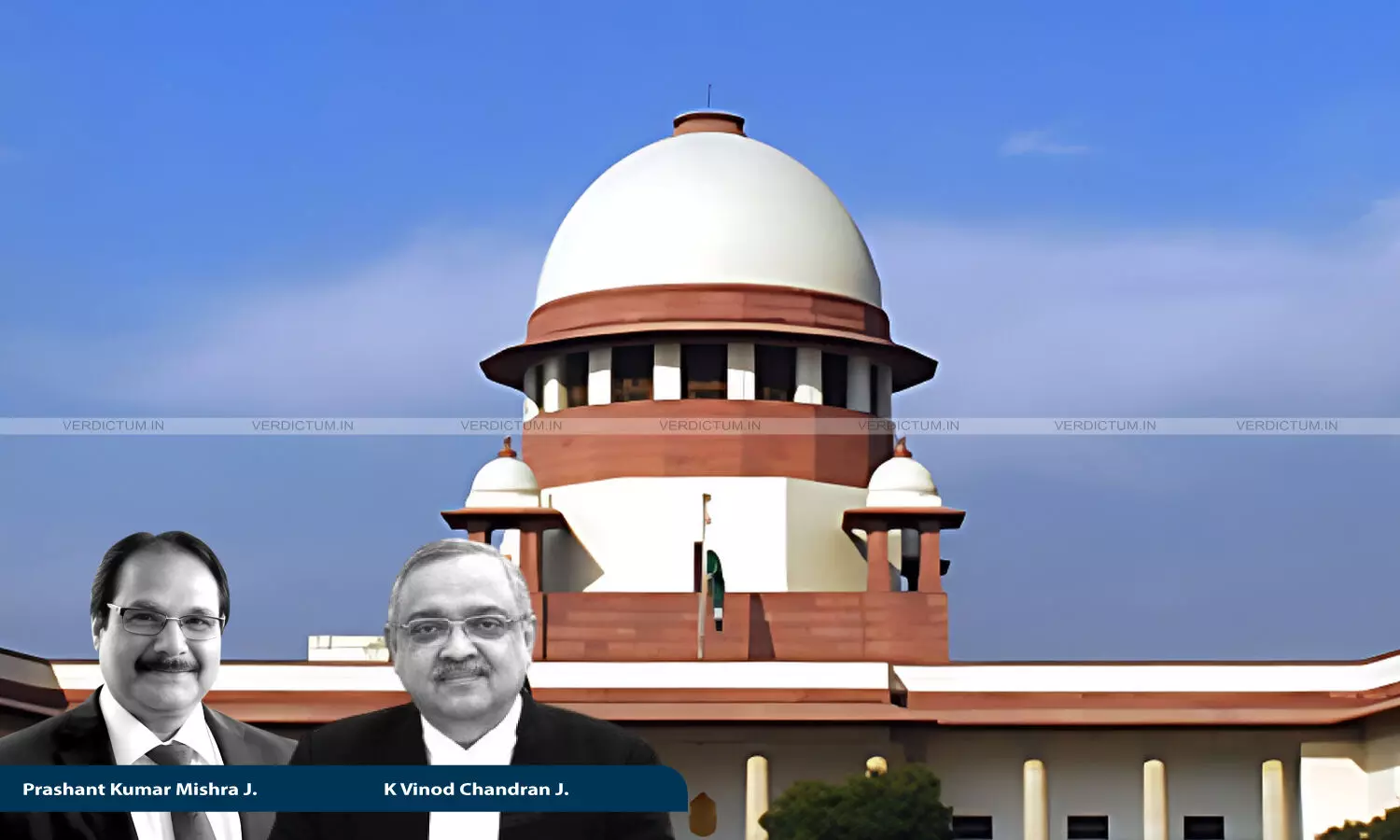
Justice Prashant Kumar Mishra, Justice K. Vinod Chandran, Supreme Court
Courts Not Obliged To Refer To Experts To Find Material Alteration In Documents If It Is Visible On Mere Perusal: Supreme Court
 |
|When a document shows obvious signs of interpolation, such as being written in different inks, courts can independently determine material alteration without seeking expert opinion under Section 73 of the Evidence Act, the Apex Court observed.
The Supreme Court has held that courts are not bound to seek expert opinion under Section 73 of the Indian Evidence Act, 1872, when a document shows clear and visible signs of interpolation.
The Apex Court was hearing an appeal arising out of a suit for specific performance, where the appellant sought enforcement of a sale agreement relating to two properties. While the trial court had decreed the suit in favour of the appellant, the High Court reversed the decision on the ground that the agreement suffered from material alterations and was therefore unenforceable.
A Bench comprising Justice Prashant Kumar Mishra and Justice K. Vinod Chandran upheld the High Court’s findings and observed:
“We are not convinced that Section 73 has any application and in finding material alteration the courts are not obliged to always refer it to an expert; especially when it is clearly discernible on a mere perusal of the document, that too written in a different ink.”
Advocate G. Sivabalamurugan appeared on behalf of the appellant, while Advocate D. Ramakrishna Reddy represented the respondents.
Background
The appellant had entered into a sale agreement for the purchase of land and claimed that there was misrepresentation regarding ownership of a portion of the property. A legal notice was issued within the stipulated period, expressing readiness to pay the balance sale consideration.
However, before the sale deed could be executed, the properties were purchased by the respondents, who subsequently constructed buildings on the land.
Consequently, the appellant filed a suit for specific performance. The trial court decreed the suit, holding that the plaintiff was always ready and willing to perform his obligations and that time was not the essence of the contract.
However, on appeal, the High Court reversed the decree, finding that the sale agreement contained material alterations written in different inks. Relying on the decision in Seth Loonkaran Sethiya v. Ivan E. John, the High Court held that the agreement was tainted and therefore unenforceable.
Court’s Observations
The Supreme Court concurred with the High Court, holding that the agreement was unreliable due to visible interpolations and inconsistent recitals. The Bench noted: “The High Court has looked at the agreement to find material alteration which, according to the High Court, is clearly discernible; especially when two inks were used in the agreement. The details of Item No.2, as also the alleged agreement to sell that plot, were found to be clearly interpolated.”
The Bench further pointed out contradictions regarding the extent of land and the total sale consideration. It was observed that the figures mentioned in the agreement were inconsistent, which undermined the appellant’s claim of financial preparedness. Additionally, the Bench took note that the appellant had given up part of his claim during the trial, which further undermined the basis of his suit.
Furthermore, clarifying that Section 73 does not mandate expert opinion in all circumstances, the Bench held that when alterations are clearly visible, such as the use of different inks, courts can independently determine material alteration without referring the document to a handwriting expert.
Conclusion
Finding no merit in the appeal, the Supreme Court dismissed it and upheld the High Court’s judgment, thereby rejecting the appellant’s plea for specific performance.
Cause Title: Syed Basheer Ahmed Vs M/s. Tinni Laboratories Private Limited & Anr (Neutral citation: 2025 INSC 1030)